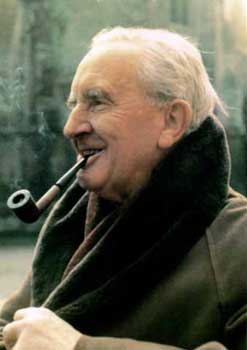I love books. And when people know you're a book lover there are some questions you will always get asked, one of those being, "Who's your favorite author?" Now, I don't know about you, but I always have trouble picking just one. Honestly, I don't think I will ever be able to say I have a for-sure favorite author. Rather, I have a list of authors who, in various ways, have inspired me, and in turn, influenced my writing.
 |
| Image credit: upperroom.org |
C. S. Lewis:
The Lion, the Witch, and the Wardrobe is the one book that I credit with having inspired me to pursue writing as a career.
I was introduced to his work, as many people are, through
The Chronicles of Narnia. It was through that series that I realized the power that books have; books can be great vessels for presenting ideas or messages to
all ages, especially ideas that may not be well received in other forms. Another thing I love about Lewis, was how he wrote in quite a few different genres. He wrote poetry, essays, science fiction, fantasy, nonfiction, and autobiography. It's really amazing, in my opinion, and hopefully one day, I'll read them all. Not only that, but it's proof that an author doesn't have to write in just one genre to be successful, I don't have to limit myself. Because of Lewis, I truly feel like I can write anything that I want to, I don't have to be tied to one thing for the rest of my life.
J. R. R. Tolkien: Because of him, I want to create a fictional world that is extensive, even if it's just a quarter of the depth he gave to his world.
 |
| Image credit: nndb.com |
When I first read
The Lord of the Rings in 8th grade my friends thought I had checked out a dictionary from the library. It was just all three books in one giant copy. Even now, in my last semester of college, I haven't nearly read everything Tolkien has written about Middle Earth. And that is one of the greatest things an author can do. I will always be learning more about this world that he created, and there will always be more stories to read. It's a massive amount of writing, not to mention the languages and maps and everything else he made just for Middle Earth. Tolkien's work with creating histories has been very influential on my own work. I've started working on creating my own world, but it is a lengthy process, to say the least, and it is nowhere near completion.
 |
| Image credit: titletrakk.com |
Ted Dekker: As a Christian writer it can be hard to find a balance between the realities faced in life and hope, but his work showed me that it's completely possible.I'm not normally interested in reading thriller or suspense type novels (which is what he writes). I prefer the action and adventure. Then I picked up
Black by Ted Dekker, and it just blew me away. The thing that I immediately fell in love with was the stark reality he presented in all his books (that I've read so far). I feel like sometimes Christian authors tend to idealize life in certain ways, their stories can have a polished air to them. And while that's not necessarily bad, and those books are great to read, it is refreshing to read a novel that can sometimes be a bit dark. Dekker doesn't mask all the bad things; not everybody lives, the protagonist is flawed, people get hurt, and families are broken. There is a reality to these novels that is not really presented in some other Christian books. So when I get stuck with how to write life realistically, I know I can turn to him and his books for inspiration.
These are just three of the authors who have influenced and inspired me. But while other authors and books give me ideas or spark my creativity, these three have impacted me in much bigger ways. They've drawn me in and shown me the possibilities, and I love what I see ahead.
by Laura Cisneros, intern




